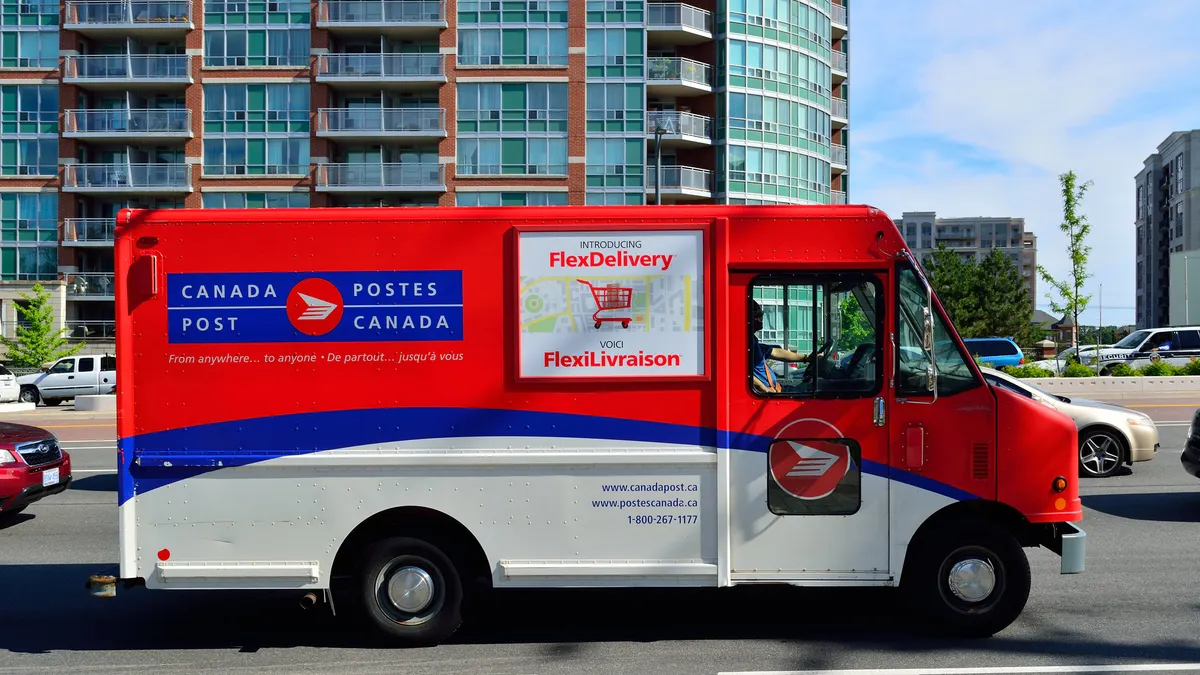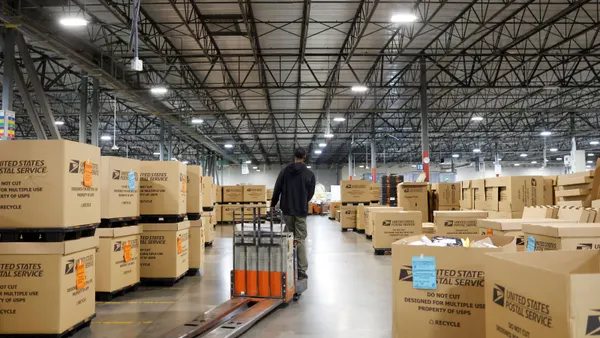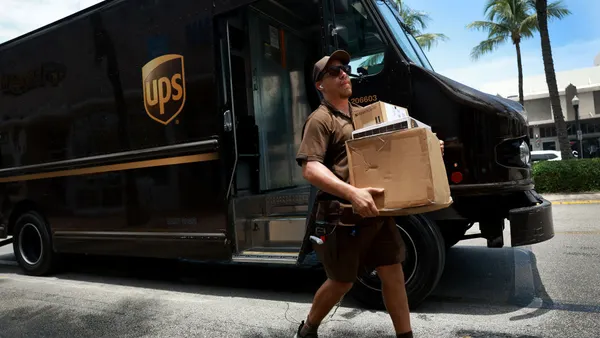Dive Brief:
- Canada Post workers represented by the Canadian Union of Postal Workers have shifted their strike actions, a move experts said could escalate the labor dispute and spur more shippers to find other delivery options.
- The carrier and the union remain far apart in ongoing contract negotiations over issues such as wages and weekend delivery operations. In a bid to push Canada Post back to the bargaining table, CUPW-represented employees stopped delivering unaddressed direct mail on Monday while ending their overtime ban in place since May 23.
- “Canada Post has had our global offers since August 20, and instead of responding, they issued an ultimatum: change our offers or they would walk away, with no commitment to return,” said Jan Simpson, CUPW national president, in a Friday news release. “We’ve been left with no choice but to change our strike activity with the hope that Canada Post finally takes us seriously and returns to the bargaining table.”
Dive Insight:
The now-lifted overtime ban didn't help the union improve its negotiating leverage, as a steep drop in volume meant employees could deliver packages with limited need for overtime, experts said. The carrier's parcel volume plummeted 36.5% year over year in the second quarter, while parcel revenue saw a similar decline of 36.7% YoY.
With the swap to an unaddressed direct mail ban, the union is aiming to drive "a more definitive impact on the Canada Post revenue stream in order to pressure the organization to negotiate or meet their terms," John McClymont, principal of supply chain consultancy Operational Innovations, said in an email.
Unaddressed direct mail falls under Canada Post's Neighbourhood Mail business and is often used for marketing materials. Canada Post made $421 million in Neighbourhood Mail revenue in 2024, an 8% YoY increase. The category's performance helped offset declines in other direct marketing products.
"This decision impacts the thousands of Canadian businesses that reach their customers with information and offers through the mail," Canada Post said Friday of the CUPW-imposed ban.
The carrier continues to process and deliver other products, such as parcels and addressed mail, as normal. However, CUPW's Neighbourhood Mail ban could be the start of escalating actions between Canada Post and the union, compounding service risks for shippers, according to Alison Layfield, VP of product development at ePost Global.
"It may push the Corporation to take legal action due to the 'refusal to work,' and force Canada Post to issue a lockout — or maybe the union decides to push a little harder yet and begin rotating strikes or a full work stoppage," Layfield said in an email.
As uncertainty persists over the ongoing labor negotiations, even more volume could move from Canada Post to other delivery options ahead of the critical holiday season, according to McClymont. Last year, Canada Post employees went on strike during the peak shipping stretch, spurring delivery disruptions for many shippers.
"Going into Q4, where tons of retailers make their year, anything that introduces risk or uncertainty around things like quality of service, reliability, capability, etc will cause people to look elsewhere," McClymont said.












